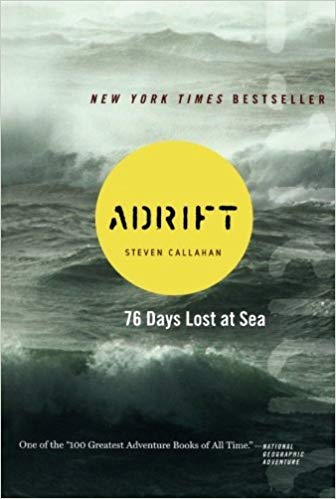Rescue will come as a welcome interruption of the survival journey.
Dougal Robertson, author of Sea Survival: A Manual
I’m glad you have taken the time to visit this website. I imagine that you have done so because you are in pain and are considering ending your life. (Or you know someone who is considering ending theirs). You may have tried many things to reduce this pain, but found nothing that has helped. As a result, you might be feeling hopeless about your prospects for recovery. You might be thinking, “I am powerless to change my present situation and my pain will go on forever. Perhaps it would be better to end it now than to suffer with it the rest of my life.“
I understand your despair. I have experienced my own dark suicidal episodes. Fortunately, with the help of others, I was able to find a path that led me out of my suicidal pain. And now I offer this path to you. I believe that you too can find a way out of your anguish and despair. It may not happen overnight, but it will happen. This is because the overwhelming majority of people who seriously think about suicide do not act on their suicidal thoughts. The odds are in your favor that you are going to be okay.
One day, as I was describing my pain to my therapist, I imagined myself as a sailor who survived a terrible shipwreck and was lost at sea.
“And what is the task of that sailor?” she asked.
“To try to stay alive until help comes,” I answered.
“Precisely!’ she replied. “Your job is to create an ‘emotional life raft’ that will keep you afloat until the pattern of your illness shifts, and it will shift for the better.”
It was then that I realized that stories of treacherous experiences at sea offered a perfect metaphor for the kind of life-and-death struggle I faced.
One such story comes from the memoir Adrift: Seventy-Six Days Lost At Sea. The author, Steven Callahan, was sailing solo around the world on a sailboat he had designed himself. As he neared the coast of Africa a violent storm destroyed his vessel. He was able to save himself by abandoning the ship and jumping aboard an inflatable raft.
Callahan had limited supplies on the raft-some food, a sleeping bag, a speargun, and a solar still which allowed him to distill drinking water from seawater. For the next two and a half months, he struggled to stay alive, knowing that the trade winds would eventually blow his raft across the ocean where he would encounter land. There were many days when he wanted to give up. And yet, he persevered, knowing that each day he stayed alive brought him closer to his destination.
Then, one day, his solar still permanently broke down, leaving him with only three cans of freshwater. At the very moment that he had resigned himself to death, his raft was spotted off an island in the West Indies by a group of fishermen. In the battle between death and rescue, rescue had won.

Rescue will come as a welcome interruption of the survival journey.
Dougal Robertson, author of Sea Survival: A Manual
Think of yourself as being on a journey similar to Callahan’s. You are in your own life-and-death situation. You are adrift; not on the Atlantic ocean, but in an inner sea of emotional pain and despair. You are fighting not the outer elements, but those inner demons that tell you the only way to end your suffering is to end your life.
To support you on your survival journey, this website is designed to give you the practical tools and coping strategies you can use to keep yourself alive until your rescue happens. These strategies have been successfully used by myself and other people to overcome our suicidal pain. If you put them into practice, they will work for you.
In his memoir Reasons to Stay Alive, depression survivor Matt Haig described the impermanence of the suicidal state in these words:
Minds have their own weather systems.
You are in a hurricane.
Hurricanes run out of energy eventually.
Hold on.
Hold on. That is what Steven Callahan did, and that is what I am asking you to do. Keep your raft afloat, living one day at a time, and, eventually, you will reach your inner “West Indies” and be rescued from your suicidal hell. No matter how you may be feeling, I want to assure you that there is hope, that there is life, and that your best days are ahead of you.
Reflect on the image of the sailor lost at sea that I used to describe my suicidal state. Is this metaphor helpful to you in thinking about your own situation? If so, how is it helpful? Take some time to write down how it provided support.
Can you think of another image or metaphor that could describe your suicidal state – personally to you and give you guidance about how to navigate and cope with your situation? Take some time in meditation to imagine this.
Having your own image, like the sailor lost at sea, can give you a way to view your situation that will move you beyond hopelessness and empower you to keep on persevering.

The content of this website is for educational purposes only and is not meant to replace diagnosis or treatment by a qualified mental health professional.